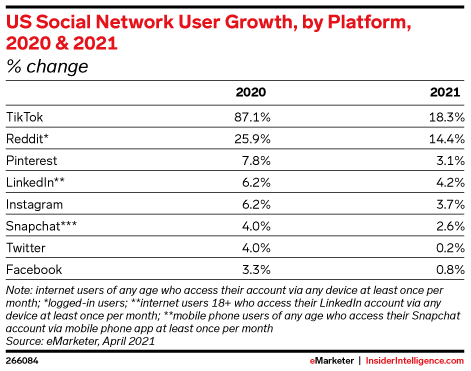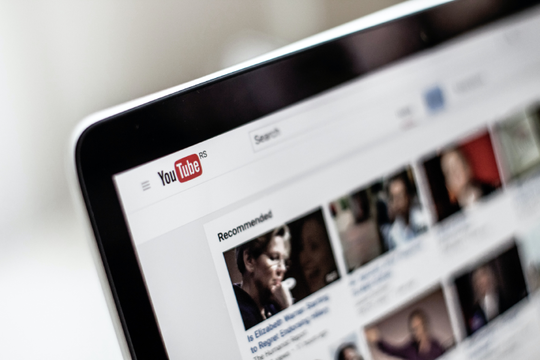
The State Of Data-Driven Marketing In 2023
In this article, we will take a look at the state of data-driven marketing in 2023 and how it is transforming the marketing landscape.
Read MoreAt [B]RIGHT, we illuminate data-informed digital solutions to help your brand succeed in an increasingly complex marketing landscape. Which means we help brands grow based on data, research, and a hefty dose of proven processes, tactics, and channel-specific strategies.
We take the guesswork out of your marketing strategy.
The Stories You Have to Read:

The US has a developer shortfall of around 1 million coders and an increasing demand for digital solutions across industries. Microsoft may have come up with a way to lower the barrier to entry for new coders while also helping seasoned developers become more efficient: a suite of tools for “low code” and “no code” software for enterprise customers. PowerApps, a program in that suite of tools, allows for app building that appears to be as simple as dragging and dropping buttons and rearranging a page as you would in a PowerPoint presentation. Then database queries can be connected and done using the basic coding form of Microsoft Power Fx formulas that can be generated in response to a conditional text statement.
The usage of print catalogs has been increasing since 2015 and response rates from catalogs have increased 170% between 2004 and 2018, according to Harvard Business Review. Retailers that historically have been online-only are now printing and investing in catalogs—brands such as Wayfair, Amazon, Patagonia, and Crate & Barrel, to name a few. Harvard Business Review conducted a large-scale field experiment with some surprising results: When pairing catalog mailings with an email campaign they saw a 15% lift in sales and a 27% lift in inquiries as compared to an email-only campaign.
Printed catalogs may not be the first channel coming to mind for future-centric marketers, but there is a reason catalogs have not vanished, and that is because they still work. There is something nostalgic about flipping through a catalog. The feel and texture of the pages and binding makes the experience more tangible as customers page through, potentially consuming more brand and product imagery than they’d encounter on a single webpage. The catalog is a great option to consider in your multi-touchpoint marketing mix.
Shameless plug: If you are in the market for catalog development, then look no further than Britton Marketing & Design Group. They are masters in the craft of developing inspirational and aspirational visual imagery to showcase your brand in any print form: catalogs, brochures, mailers, and more.
Social media usage is expected to remain higher than pre-pandemic rates, with a total average usage of one hour and 35 minutes per day, a 13-minute increase in 2020. Although usage rates may remain steady, user growth across networks is expected to happen at less than half the rate seen in 2020. The entire balance of social media user demographics has shifted somewhat with the number of users age 65 and older outnumbering users ages 18 to 24.
TikTok and Reddit are expected to see the largest growth rates in the industry, and Facebook and Twitter are expected to have the slowest growth rates out of all reported platforms. eMarketer is forecasting that TikTok will surpass Instagram this year in the number of Gen Z users on its platform.
CTV advertising is continuing to boom as streaming content reaches 142 million adults across the US. Thirty billion minutes of content have been streamed during the first quarter of 2021 alone. That figure is up from 13.5 billion minutes streamed in Q1 of 2018. Nielsen projects that the CTV advertising spend in the US will reach almost $27.5 billion by 2025. CTV is becoming a more viable advertising option for many companies, but knowing the addressable reach of individual platforms is just as important as knowing the variations of CTV options available. Not all CTV advertising is the same, and there are differences in delivery between OEM equipment using streaming apps like TVs or plug-in units, programming distributors like Sling TV, content owners such as HBO, demand-side platforms like the Trade Desk, private marketplaces, and others.
CTV, also called OTT, is an advertising channel that is here to stay. Viewers continue to navigate away from traditional cable and satellite TV options and opt instead for the personalized, on-demand streaming options that rely on ad revenue to avoid subscription models. Costs for advertising on CTV can be higher than using social media, programmatic, or search channels, but if your advertising channel strategy can handle it, then CTV is a great option for top-of-mind awareness.

YouTube's masthead ad placement has a dominant placement on screens and potential for wide spread reach and influence over users. That is why YouTube is tightening restrictions on who can advertise in that space and are making it a dynamic ad spot for all advertisers to bid on.

YouTube will be banning some pervasive verticals from purchasing ads in the masthead ad unit starting June 21. This ad placement is prominent on mobile devices and spans the width of smart TV screens. YouTube will be banning companies seeking to advertise alcohol sales, prescription drugs, gambling, and political campaigns from using that prominent placement on its platform. YouTube, among other publishers, has received criticism for hosting political ads on their homepages. Last year, YouTube said it would not allow full-day masthead reservations on its home screen and would be changing it to a per-impression basis like other normal ad placements.
A bipartisan group in the US House of Representatives introduced four new bills aimed at reining in the power of tech giants on Friday, June 11. Two of the bills are to prevent companies from creating marketplace platforms and then joining and competing against the same businesses that are selling from their platform. In other words, these bills are taking aim at Amazon’s strategy.
Other measures ban platforms from operating or owning subsidiaries that compete on the platforms, and yet another makes it illegal in most cases for a platform to give preferences to its own product on its platform. In other words, Amazon’s strategy is right in the crosshairs.
Opponents of the first two bills criticize them for addressing specific tech giant businesses rather than the underlying business practices. As they are, they could be deemed unconstitutional. The third and fourth bills place restrictions on mergers between companies with competing products or services and give users control over their data to be transferred to competing businesses.
Facebook Reality Lab’s focus is to bring more people into the Oculus VR experience. They are testing VR advertisement placements as a means to bring entry costs down. Facebook can then generate its income from advertising spots rather than relying on a subscription model. The purchase of an Oculus headset is still necessary to join the fun, which runs about $299 for two headsets.
Facebook's Oculus headset sales rose 146% YoY, which was likely driven by pandemic-related consumer habits. The VR ad placements are going to be driven by Facebook's existing ad standards, and they are enabling users to have full control over the ad content and options to hide ads just like on the main app.
YouTube Shorts are adding new control options in the YouTube Studio—which channel managers can use to monitor and restrict the usage of their assets in remixes—and new analytics in the main app to track the performance of Shorts content.
YouTube wants to integrate remixing into the Shorts format to make them more appealing and engaging, directly competing with TikTok’s format. YouTube has the benefit of an exponentially increasing library of content that can be spliced into Shorts, but the platform must be sensitive to creators who may not want their content chopped up and potentially used for mocking or bullying. Shorts features and monetization options are sure to expand, as YouTube announced a $100 million fund dedicated to assisting top Shorts creators.
Thanks for reading our [B]RIGHT take on this month's marketing and tech-related news. We found these articles insightful and helpful in navigating the changing marketing landscape and hope they are of value to you too.
Until next time.
Seth Slone | Digital PM

In this article, we will take a look at the state of data-driven marketing in 2023 and how it is transforming the marketing landscape.
Read More
Marketers need to be agile and proactive in their planning, adapting to the changing landscape and staying ahead of the competition.
Read More
The marketing landscape in 2022 saw the continuation of several key trends, including the growing importance of data-driven marketing, the rise of e-commerce and the increasing dominance of digital channels.
Read More